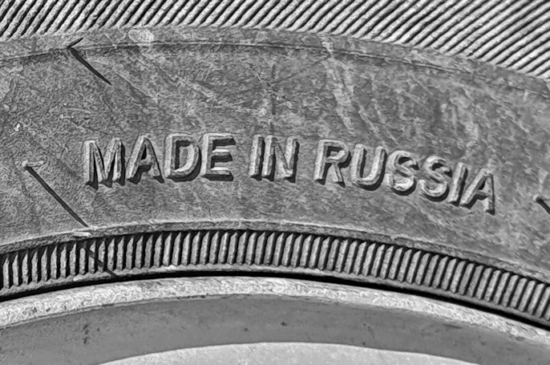Russia’s Cordiant working to reduce rubber import dependence
 The joint initiative aims to develop the “technological sovereignty” in Russia’s transport industry (Photo: Stephen Goodchild / Tyre Industry Publications Ltd)
The joint initiative aims to develop the “technological sovereignty” in Russia’s transport industry (Photo: Stephen Goodchild / Tyre Industry Publications Ltd)
Tyre maker Cordiant has signed a letter of intent with major Russian polymer and rubber producer Sibur to replace natural rubber with synthetic isoprene rubber in the formulations of various types of tyres. Sibur explains that this joint initiative aims to develop the “technological sovereignty” in Russia’s transport industry by substituting imported natural rubber from Asia-Pacific countries.
According to figures quoted by Sibur, plants in Russia produced 38.8 million tyres in 2023, and tyre manufacture is forecasted to increase by six per cent to approximately 41 million units in 2024. Currently, natural rubber, sourced exclusively through imports, accounts for 24 per cent of the rubber used by Russian manufacturers.
New possibilities for tyre makers
Through this collaboration, Sibur and Cordiant will work to identify and implement solutions for maximising the replacement of natural rubber with Sibur’s SKI-970 isoprene rubber and then conduct both bench and field tests with experimental tyres containing this raw material. Sibur anticipates that the use of synthetic rubbers will improve tyre quality by enhancing material uniformity.
Additionally, the companies will explore the development of new grades of synthetic rubber and formulation solutions to enhance performance characteristics, particularly for premium tyres. Sibur believes this initiative will increase tyre production capacity to meet consumer demands and expand the Russian automotive industry’s export potential.
With foreign tyre makers exiting the Russian market and EU sanctions restricting the import of certain synthetic rubbers and chemicals into the country, Sibur has responded to minimise the risk to domestic tyre production, implementing a new support project for its tyre clients last year that focuses on developing new grades and adapting rubber compounds. Supported by a 200 million rouble (£1.8 million) investment, this project has reduced the import of synthetic rubbers into Russia from 11 per cent in 2021 to one per cent in 2023. By the end of last year, Sibur had replaced seven imported grades of synthetic rubbers and certified 50 non-rubber raw materials, boosting the capacity utilisation of Russian tyre manufacturers.
Achieving technological sovereignity
“Today, we observe positive growth in Russian tyre production,” states Mikhail Yurin, Deputy Minister of Industry and Trade of the Russian Federation. “The industry is developing actively. Due to the lack of natural rubber production in Russia, expanding the use of synthetic rubbers will expedite import substitution and align with Russia’s broader industrial goal of achieving technological sovereignty.”
Pavel Lyakhovich, executive director of Sibur, comments: “The further development of local tyre production and reducing reliance on imports requires the cooperation of all industry stakeholders. As a leading producer of synthetic rubbers, Sibur is committed to providing comprehensive support and developing product solutions that will not only promote the localisation of tyre production but also enhance its export potential.”
Vadim Volodin, chief executive officer of Cordiant, adds: “Our joint R&D efforts on testing new samples will enable the Cordiant tyre cluster to produce tyres with improved wear resistance, grip, and rolling resistance using Sibur’s rubbers. The high strength and versatility of synthetic rubbers will ensure our products meet the highest quality standards and remain competitive in global markets.”
Along with the former Russian businesses of Bridgestone and Continental, Cordiant belongs to investment company S8 Capital.



Comments